The Truth About Bryan Johnson
How a tech mogul with unchecked power silenced his former fiancée and employee — and an insidious legal abuse no one is talking about.
Bryan Johnson, the tech multi-millionaire known for his quest to defeat death, appears just as determined to destroy his ex-fiancée and former employee, Taryn Southern. Over the past year, Bryan has painted himself as a victim of extortion, calling Taryn’s 2021 lawsuit a “money grab” and celebrating his legal wins as vindication. He repeated this narrative in a viral YouTube video, grossly misleading social media posts, a Netflix documentary, and in his most recent video, where he says, “It’s honestly so inhumane for someone to try to destroy someone else’s reputation with false allegations.”
We agree, Bryan. But the inhumanity is yours. You omit that Taryn is bound by a one-sided NDA¹, unable to publicly respond to your ongoing slander.
Fortunately, we — Taryn’s friends — did not sign NDAs². And we have receipts.
In Bryan’s most recent outbursts online, he claims to have been by Taryn’s side throughout the entirety of her cancer journey “…from diagnosis to the very end.” He shares footage from a sequence of moments, such as a bell-ringing ceremony in January of 2020—coincidentally, at a time when he most needed her signature on a document that becomes central to the story.
Critically, Bryan leaves out crucial details: Taryn wasn’t just his ex. She was also his employee. He omits how he broke up with Taryn in October of 2019, and how he eventually fired her from his company during cancer treatment, withheld her pay, terminated her health insurance, threatened her with legal action, took away her lawyer, and used fraud and coercion to get her signature on a one-sided agreement that stripped her of her rights in exchange for just $1,000. He also fails to mention that Taryn was forced to pay his legal fees not because her claims lacked merit, but because of contractual clauses designed to benefit him. Bryan has never addressed the substance of Taryn’s claims or why they were filed.
Throughout Bryan’s character assassination of our friend, we’ve wanted to come to Taryn’s defense. We stayed mostly silent because we didn’t want to risk provoking Bryan into retracting a public vow he made in his YouTube video, one that garnered him public sympathy and credibility:
“The settlement funds she owes me will be routed to a trust I established for her medical needs. She is the sole beneficiary and is the only person who can access the trust. I won’t keep a penny of what she pays as part of the judgment.”
— Bryan Johnson, in his video
That trust, we now know, was never funded. An email sent to Taryn’s lawyer last year confirmed it was shut down—and neither Taryn nor the trust received a single cent.
Bryan Johnson is not the man he wants you to think he is.
You deserve to know about the dark side of Bryan Johnson, and about the legally savvy tactics and one-sided contracts that people like Bryan use to rob others of their fundamental rights.
A single contract devastated Taryn’s livelihood, well-being, and dignity, while shielding the man in power from having to take a shred of accountability. The resulting injustices tell a story far bigger than just Taryn.
This isn’t just a story about love and betrayal. It’s also a story about how powerful men use legal contracts to erase voices, avoid consequences, and rewrite the truth. And that affects all of us.
¹ While “NDA” typically refers to non-disclosure agreements, we use this acronym to refer to Taryn’s non-disparagement agreement clause, which we believe prevents her from sharing events and experiences that potentially cast Bryan in a negative light, even when they are true.
² According to Bryan’s deposition, he now asks all women he dates to sign NDAs. Based on what we know, some of these women are up to two decades younger than him and may not understand what they are signing. For someone who repeatedly touts his commitment to truth and transparency, why is he intent on silencing everyone whom he dates or works for him? Presumably, he does not see this practice as exploitative.
So, where to start?
It’s difficult to know where to start a saga that is long, complex, and full of legal landmines. To make it easier to read, we’ve divided it into six parts:
In Parts 1 and 2, we do our best to balance the public narrative by sharing what we know and witnessed, drawing from memories, photographs, and text messages. In Parts 3, 4, and 5, we rely heavily on thousands of pages of now-public court filings. In Part 6, we address why we’ve come forward and why, as a society, we must change NDA laws that protect perpetrators and silence victims.
Please don’t take our word for what transpired. You’ll find proof in every image from the publicly available court filings linking to their source. From there, you can come to your own conclusions.
Part 1: The Beginning
They met in 2016. Bryan, a tech founder, had sold his company to PayPal for $800 million in 2013 and was newly divorced. Taryn, a recognized figure in digital media, had made a name for herself as a TV host and an early content creator on YouTube.
Bryan first messaged Taryn on social media. A romance soon followed, and within a month of dating, Bryan was asking Taryn to quit her career and work for him full-time. She introduced Bryan to all of her tech and media contacts and developed a documentary to elevate Bryan’s profile in the neurotech community. When she wasn’t working on the film, she strategized for him and his companies, OSFund and Kernel.
According to her employment contract, Taryn was paid only $20,800 a year. Even with the addition of several project-based consulting fees, Taryn earned just a fraction of the substantive income she had before meeting Bryan — a figure her attorneys would later factor into their claim calculations.
Bryan paid their rent and other living expenses. He repeatedly told Taryn, who was always budget conscious, not to stress about money. Trusting in Bryan’s commitment to their shared future, she even sold her income-generating home in 2018 as a result of their discussions.
Bryan proposed to Taryn in the spring of 2018, while Taryn finished producing and co-directing the film he had financed to raise his profile. In April of 2019, on the day of the film’s premiere at the Tribeca Film Festival, Taryn found a lump in her underarm.
Weeks later, Taryn was diagnosed with stage III breast cancer. Doctors warned of an aggressive, year-long treatment plan including chemotherapy, radiation, and the possibility of a double mastectomy.
Bryan’s behavior during Taryn’s chemotherapy baffled those of us close to her. He was involved in many of the early treatment decisions, applying his scientific reasoning skills to ensure she was asking the right questions and meeting the right doctors. But emotionally, and as the gravity of Taryn’s diagnosis and treatment went on, Bryan seemed to hit the eject button.
We were the ones by Taryn’s side through it all. Our shared calendar enabled us to coordinate her rides to and from chemotherapy appointments . While we sat with Taryn through eight-hour infusions every three weeks, to our recollection, Bryan would occasionally stop by on short lunch breaks and leave. Not once, to our knowledge, did Bryan ever pick her up or take her to an appointment.
We were the ones Taryn cried to as clumps of her hair started falling out. We were the ones who made sure she kept her numerous doctor’s visits and therapy sessions, sharing a group calendar and taking turns driving Taryn to and from appointments. Some of us flew to LA from across the country, taking days off work.
But we wondered: Where is Bryan?
As months of treatment went on, Bryan spent less time at home. He insisted on sleeping in separate rooms, and claimed to be at work until late into the night when Taryn was going to bed. When we were there caring for her, Bryan often avoided conversations and eye contact.
We tried to hold back our anger and told ourselves trite excuses about events like this, like how everyone processes crises differently.
Then, about a week after she finished her final chemotherapy treatment, Bryan came home with the words that shattered her.
Part 2: The Breakup
It was shortly after Taryn’s last chemotherapy treatment, and she was managing a painful outbreak of shingles from her compromised immune system.
Around this time, Bryan came home and told her that it was best if they separated. He allegedly revealed to Taryn that the reason for separation was because she had become a “net negative” and a “bad deal.” One of the most shocking things he said was that he, “had the cancer too,” insinuating that Taryn’s cancer had impacted him as much as it had her.
Almost two weeks later, Taryn shared the news with some of us over text:
Bryan, through his sworn deposition and in his various social media attacks, lies repeatedly about the breakup, saying it occurred in November and that it was “mutual,” with Taryn offering to move out.
Why would Taryn suddenly breakup with Bryan, who was not only her fiance but also her employer, in the middle in the chemo? Why would she not tell any of her friends? And why would she offer to move out, on her own dime, when she was fighting for her life?
Because she didn’t. And Bryan’s own attorneys’ filings seem to confirm all of Taryn’s testimony, test messages and therapy notes, albeit with the date wrong:
Taryn, meanwhile, was stunned from the breakup. She had been planning their wedding and looking forward to the completion of chemotherapy. Suddenly, she found herself heartbroken and daunted by the idea of moving out and starting life over amid remaining cancer treatment.
As shown in this note dated November 1st, 2019, Taryn shared details of the breakup with her therapist, including that Bryan broke up with her unexpectedly three weeks prior, told her she needed to leave the house, and that she was trying to stay with other people while looking for a place to live.
According to court documents and legal letters you’ll soon read, it was around this time that Bryan verbally offered to provide Taryn with rent and living expenses for a year in exchange for her moving out. Even though Bryan had two assistants, he apparently said that moving out would be too “inconvenient” for him, as he had just had surgery on his hand. Meanwhile, Taryn was still sick and battling cachexia — muscle loss from chemo — and could barely lift a five-pound weight.
Taryn was, at this point, still living with Bryan and preparing for surgery with a litany of appointments and meetings. Ridden with confusion, grief, and growing fears, she was uncertain of how to behave around him.
Taryn’s surgery was on the morning of October 22nd, 2019. Because of the increasing tension at her home, and the fact that Bryan was barely engaging with her, she decided to take an uber by herself to the surgery center, while one of us agreed to pick her up and drive her home.
Perhaps aware that not showing up to his now-ex’s surgery might be a bad look, Bryan did end up appearing in the waiting room after Taryn’s surgery had completed. He snapped a few photos and videos with her, but we do not recall him offering to take her home. She was driven home by the same friend she had arranged with, and in the weeks that followed, Bryan continued his cold distance.
Bryan released a video online including his footage from the morning of Taryn’s surgery. He tries to present it as proof that he did not abandon her when she got cancer. He, of course, does not say that he had already dumped her by this point, and that the two were barely speaking.
As Taryn healed, she began to look for places to live according to the budget Bryan had provided her.
Part 3: The Separation Agreement
At this point, Taryn was still an employee of Bryan’s company Kernel . She’d continued working as much as she could during chemo, building a deck for investors and preparing their film for distribution and release. Taryn still didn’t know if the cancer was gone, or what next steps her treatment plan might require. Now she feared her employment status—and her health insurance—might be at risk.
On November 11th, 2019, as Taryn was healing from surgery and just a few weeks before she was set to move, Bryan presented her with a formal letter and an 11-page separation agreement. In this lengthy document, he had codified the $5,000 a month he had offered for rent and $7,000 a month for living and health expenses, plus $5,000 for professional movers. For twelve months, the sum totaled $149,000.
But it came with a steep price tag.
Bryan’s offer was now stipulated many conditions, including the termination of Taryn’s employment and, therefore, her health insurance — a particularly nightmarish scenario for someone in active cancer treatment.
The real clincher of Bryan’s offer was a hefty confidentiality provision with even heftier damages: $500,000 per infraction if Taryn ever said anything about him or his family that could be construed as potentially negative (even if it were true):
In the letter attached to this same agreement, Bryan insists (with subtle threats) that she must abide by the confidentiality (non-disclosure) provisions contained in the agreement even before signing it.
He also requested that she publicly post on social media that the break up was “mutual” and “lovingly made” and that they were still “best friends,” presumably so no one would suspect how he was treating her.
And finally, he makes it clear that if she doesn’t sign his attached agreement, she would have to return any funds he provides for her moving or rent expenses.
Bryan’s looming demands made Taryn appear cagey and reticent, fearful of saying too much yet clearly needing to process her heartbreak and seek advice.
We were deeply concerned, asking why Bryan even wanted an NDA. None of us had a partner ask for the legal promise of our lifelong silence upon a penalty of half a million dollars, and certainly not while going through cancer treatment. Taryn said that it was to “respect his need for confidentiality.”
What kind of person, we wondered, was so protective of his public image that he’d make it his number one priority to have his fiancée, weak and sick from cancer treatments, sign an NDA with steep penalties to ensure his reputation — at the expense of her health?
We watched Taryn oscillate between grief and hope, anger and desperation. We worried the stress would crush her fledgling immune system. She expressed how maybe Bryan was just in a moment of panic, overwhelmed by work. At times, she seemed almost protective of him, giving him the benefit of the doubt and holding out hope that he’d wake up from his lapse in judgment and beg her to take him back. Her wavering Stockholm Syndrome-like emotions were understandable to those of us who had endured remorseless treatment from volatile partners.
On November 22nd, 2019, Taryn’s attorney sent a counter to the terms of the separation agreement. The counter was a calculation based on the fair market value of Taryn’s income working for Bryan for three and a half years (she had heavily discounted her work for him due to their personal relationship and his promises of a shared future), as well as the rent and living expenses he had promised. Given Bryan’s lofty demands around confidentiality and insistence on a $500,000 per infraction penalty clause, the counter seemed appropriate.
Bryan didn’t take too kindly to this attempt to negotiate and retaliated with astonishing aggression. In a second letter sent by his attorneys, just a day before Taryn had already planned to move out, Bryan pulled his offer entirely—and put her on notice that he was terminating her employment.
Perhaps most egregiously, Bryan then formalized a threat to kick her out of the home, and insinuated he might come after her for three years of back pay for rent. He told her she needed to leave the premises on December 1st, 2019, with no assistance from third parties without Bryan’s permission.
Furthermore, he purported to own all the ideas she conceived of during her employment.
To send the ultimate message, Bryan used clever legal maneuvering to then strip Taryn of her attorney at Fox Rothschild.
Completely alone and without legal representation to make sense of Bryan’s threats, Taryn called one of us, sobbing, reeling from shock and despair. The letter caused her so much distress that she missed an appointment at the Mayo Clinic to participate in a radiation clinical trial.
We hope you understand why we view Bryan’s behavior as nothing short of abusive.
The next day, over Thanksgiving, we helped Taryn move out of the home she’d shared with Bryan and into a studio cottage.
Bryan was never present, nor did he make offers to assist. In progress notes with her trauma therapists, you can see her oscillating between fear and anxiety.
In the weeks that followed, Taryn began daily radiation, which left her exhausted beyond measure. She went to every single appointment alone.
Bryan, meanwhile, privately offered to provide Taryn with the rent and living expenses he had initially promised— but only if she finished the contract without lawyers involved. So she met with him privately at his office. When Taryn asked for him to remove the unfair confidentiality clause penalties, he refused, as noted in her therapy note in December:
Alone in her new home on Christmas Eve, having just dropped off Christmas presents for his children and planning to spend Christmas alone, Taryn learned from a friend that Bryan was dating again. Just weeks earlier, he had insisted she not tell anyone that she “had to find a place to live,” in case that might made him look bad.
Taryn confronted him on Signal.
After this message, Bryan’s behavior suddenly shifted. Bryan called her and sounded apologetic; one of us was there for that call. Perhaps realizing he didn’t yet have a signed agreement, he later sent her encouraging messages, and would spend the next few weeks occasionally checking in via text and finally offering to go to couples therapy.
As reflected in her therapy notes and testimony, Bryan’s abrupt shift in behavior left Taryn more confused. She wavered between grief, terror, anger and longing — conflicting emotions reflected in her text messages with us, therapist notes, and her sworn testimony.
By the end of January 2020, Taryn had completed 26 rounds of daily radiation. Not once was Bryan in attendance with her.
Bryan claims repeatedly that he was “the one person in the world” Taryn invited to attend her bell-ringing ceremony commemorating the completion of radiation. (It’s important to note her treatment was not complete — Taryn still had months left of infusions and the start of a new medication with severe side effects.)
The truth is that Taryn had wanted us, her friends, to be at the ceremony. But Bryan had asked to go and Taryn was not in a position to tell him no. He had already proven himself unpredictable and erratic, and she feared offending him might provoke further legal retaliation. So he accompanied her, an event that left her feeling both emotional and more confused.
Then, a few weeks later, as he continued to romance her, Bryan called her and said he needed her sign termination paperwork with his company—by the next day. If she didn’t sign, he said, she wouldn’t receive her hard-earned stock in his company, which he purported to be worth millions.
According to court documents, Bryan told her (again) that he was not willing to negotiate with lawyers. It didn’t matter. After Bryan removed Taryn’s attorney from representing her in the fall, Taryn didn’t have the time or funds to retain a new attorney and bring them up to speed, so she texted a lawyer friend to ask for clarification on the stock option language. No lawyer ever negotiated the agreement on her behalf.
Bryan presented Taryn with the agreement at a particularly vulnerable moment. Just weeks earlier she had started Tamoxifen, a new hormone-blocking medication, that caused her extreme anxiety, brain fog, and physical and emotional exhaustion.
The side effects were so intense for Taryn that she called several of us and emailed her doctor about migraines saying, “I’m having trouble functioning on this.”


Several of us saw Taryn during this period and can confidently attest that she was not well nor in a sound state of mind.
Panicked by the pressure of time and in too much pain to think clearly, Taryn texted Bryan that next day saying she would sign his agreement—before she even received it.
Ultimately, this document contained a release of all claims and a non-disparagement clause, which forbade Taryn from saying anything about Bryan, even if truthful, that could potentially harm his reputation.
That weekend, as Taryn waited for the agreement to be sent to her on Docusign, Bryan took her on a “date.” The two did psychedelics together, and he told her he still loved her and was physically intimate with her for the first time in over six months.
Taryn fell for it. She wrote him “I love you so much” to which he replied by sending photos of the two of them together, as well as the two of them with his children.
The alternating bids of seduction and threats from Bryan was disorienting for Taryn. She wanted to believe that Bryan was finally trying to do right by her, while simultaneously feeling afraid that she was being manipulated, and that any pushback could provoke more anger and retaliation. To make matters worse, Bryan still hadn’t paid her her project fee for producing the film ($70,000)— and he had threatened months earlier to not release it. She worried that if she didn’t sign his agreement, he might continue withholding that payment. This conflicting mix of emotions is highlighted in her sworn declaration to the court:
In spite of every part of her body screaming not to, she signed the document as soon as she received it the following week.
While many employees are confronted with termination agreements, few are negotiating against their former romantic partners, without proper legal counsel, and during treatment for a life-threatening illness. Bryan was the CEO, founder, and sole investor of his company. His brother was the CFO, and his sister the accountant — there was no board oversight and no one at the company for Taryn to safely speak to.
Taryn texted one of us hours afterward, saying, “The legal stuff just brings up so much trauma for me,” “My head is pounding,” and “the emotional distress from this morning wiped me out.”
With that one signature, Taryn gave up her right to sue Bryan and her right to speak honestly and openly about what happened to her, forever.
What did she get in exchange? A measly $1,000 in severance and stock options she would never see one dollar of value from.
If you’ve ever had the misfortune of watching a loved one go through the crippling effects of cancer and its debilitating treatments, you know the state of vulnerability Taryn was in when she made life-altering decisions that she had no idea would come to devastate her so cruelly.
Weeks later, the pandemic hit — and Bryan disappeared. Keep in mind, Taryn was now terminated from her employment and paying premiums to keep her health insurance. She never received a dime from Bryan to help her with rent or moving expenses. She was crushed.
Part 4: The Lawsuit
In the summer of 2020, Bryan reached back out to Taryn, out of nowhere, in a surprising attempt to re-hire her. Taryn was wary and anxious by his sudden return. She didn’t want to work for him, but she was still finishing treatment and felt nervous about job prospects during Covid.
Bryan uses footage from this time as an attempt to prove he was still by Taryn’s side a year after her cancer diagnosis. His misleading video might have viewers believe there were romantically still together at that point, but they weren’t. Taryn’s desperation to ensure some financial security for herself was the reason she accepted work from him. She forced a cheerful attitude hoping it would keep the peace.
Her attempts were short-lived. After two months of working for Bryan once again, Taryn reached a tipping point in August of 2020. Her nightmares, PTSD, and panic attacks became too much to bear.
One of us helped her craft a delicate letter to him, with as much loving kindness that could be mustered. As we now had a better understanding of Bryan’s psychology, we knew he wouldn’t take kindly to any shows of aggression, accusation, or insinuations, and so the letter was framed with gentle overtures, imploring him to honor his initial commitment to provide rent and living expenses for her.
This letter was later distorted by Bryan in his social media posts, stripped of context, and shown as evidence of the “integrity” and the “care” Taryn says he showed in their relationship. (He also uses the letter as proof that Taryn kept “asking for money.”)
Like all of Bryan’s attacking posts, he never explained the letter’s actual intent: to implore him to keep his promise of support—a promise that most individuals would happily make to a partner going through stage III cancer.
Bryan responded to Taryn’s letter by showing up at her home, unannounced, and demanding any work product she might still have in her possession.
Weeks later, when Taryn submitted a final invoice to his company Kernel for the work she had completed, she was told (by his brother, the CFO Jason Johnson) she would not be paid — unless she sign yet another agreement with the same steep confidentiality terms she had previously rejected.
Around this same time, Taryn panicked. She looked more deeply into her stock options she had been promised, and discovered there was no clear path to exercising or liquidating them without Bryan’s permission — all fine print that was not included in the contract she signed. She would later discover the options were worth only a tiny fraction of what Bryan purported, but it’s unclear if he would have allowed her to liquidate them, and she would have to pay him just for the rights to exercise them. (We could make a much lengthier post on this alone, but the TLDR is that stock options are incredibly complicated. Had Taryn been told their actual value, and that she would have to pay Bryan to have the right to exercise them, she would have never signed that agreement.) If Bryan remotely cared about Taryn’s wellbeing, he would have been upfront with her about the value of the stock options and the nuance of their value.
Finally, after all that had transpired and after months of turmoil, Taryn sought legal counsel. The fact that Bryan owed her for work she had completed, and had never provided her with the promised rent and living expenses, while stripping her of all of her rights and firing her in the middle of a disability event, was the catalyst for the lawsuit that followed .
Taryn met with lawyers at the firm Quinn Emanuel, who, upon hearing what had happened, were outraged. They advised her of Bryan’s unlawful actions, which included intentional infliction of emotional distress, the money Bryan owed her in unpaid work, the promise of rent and living expenses, and the stock options Bryan had told her were worth several million dollars.
Taryn’s lawyers sent a demand letter to Bryan and his counsel in April of 2021. (We encourage you to read it!)
In the letter, the lawyers map out her claims, what happened in the relationship, and the abuse Taryn suffered. They also used comps to other cases in California to estimate Bryan’s punitive damages, which are assigned to wealthy wrongdoers for patterns of intentionally perpetrating harm and abuse, and are based on net worth.
Bryan Johnson’s net worth was quite high.
Taryn’s lawyers offered to settle the claims for $9 million. Bryan later capitalized on this aggressive number to infer Taryn was a money hungry extortionist, but as independent journalist Trace Woodgrains pointed out:
Which gets us into another point: The amount set in the demand letter wasn’t up to Taryn, due to the contingency arrangement.
In contingency cases, lawyers work for free for plaintiffs who cannot afford litigation in exchange for a large percentage (up to 40%) of any settlement amounts. Contingency attorneys are therefore notoriously aggressive, as they have to go after the full extent of damages in order to take on so much risk.
Taryn went on to say in her testimony of the contingency arrangement, “…it was clear that [Quinn Emanuel] would be the ones identifying the extent of the claims and setting the value on those claims.” Furthermore, “I didn’t feel that I could set the amounts…as a result of the structure of that arrangement.”
In spite of her testimony, Bryan’s public statements aim to make Taryn out as an ex just after his money. And yet, we all know that had Bryan simply paid her the $150,000 in rent and living expenses as he had promised, and the small sum she was owed for the work she had completed, she would have never felt so inclined to pursue legal action.
At the end of the demand letter, Taryn’s lawyers gave Bryan one week to respond, noting his history of providing Taryn only days to sign his aggressive, one-sided contracts. After months of discussion, it became clear that Bryan was not interested in settling, and Taryn went forward with filing suit.
Part 5: Arbitration
Taryn’s case had a few major hurdles. The first was trying to avoid arbitration. In arbitration, there is no jury of peers to decide on your fate — just a single retired judge paid for by the company. As a result, arbitration judges tend to be biased toward the employer. (If you’ve ever signed an employment agreement, you’ve likely signed into arbitration without even knowing it.)
In a survey, almost 90% percent of attorneys cite bad experiences with arbitration, a lack of confidence in arbitrators as decision-makers, and frustration with arbitrators deciding matters while not following legal precedent.
On average, employees and consumers win less often and receive much lower damages in arbitration than they do in court. Furthermore, arbitration cases play out behind closed doors, protecting predators from the public having access to their wrongdoings.
To avoid arbitration, Taryn’s lawyers removed the employment claims from her suit and filed only the personal claims. Unfortunately, Bryan’s attorneys succeeded at having most of those claims sent to arbitration anyway, arguing they touched on employment matters and, therefore, should be governed by arbitration agreements.
What happened behind the closed doors of arbitration will make your head spin. Bear with us as we do our best to simplify…
Once in arbitration, Taryn’s next hurdle was to prove that the termination agreement she signed in February 2020 should be invalidated. This termination agreement included the release of claims against Bryan and the NDA — its voiding was necessary in order for Taryn to continue bringing her claims.
Bryan’s attorneys sought and won summary judgment, an expedited process wherein the case would be decided in writing. This had devastating implications for Taryn’s due process. She was never able to speak in front of the arbitrator, respond to questions, or bring witnesses.
Through the written filings, Taryn’s attorneys argued the release should be voided on account of Taryn’s distress, as well as undue influence and fraudulent inducement from Bryan. Taryn’s lawyers presented doctor’s emails, therapy notes, and text messages to demonstrate her chronic duress, the time pressure she was under, and the sudden shift in Bryan’s behavior to manufacture trust with her. Bryan personally issued and negotiated every document he sent Taryn, creating a severe imbalance of power.
Taryn’s attorneys also remarked on the unique circumstances of her being asked to negotiate directly with the founder, CEO, and sole investor and board member of the company she worked for, and the fact that she had no attorney on retainer and negotiating on her behalf.
According to publicly available documents, Bryan appeared to turn over relatively little evidence of the contrary. He focused instead on painting Taryn as a “sophisticated operator” who knew exactly what she signed. He provided very few emails and his deposition was evasive, at times shocking, and flat-out untruthful.
The arbitrator, Judge Green, rejected the undue influence argument on the fact of Taryn’s age, noting in her ruling that undue influence arguments are used to protect elderly patients. How sick patients undergoing cancer treatment don’t count as vulnerable parties is beyond us. Judge Green also appeared to repeatedly confuse the various agreements and fact timelines, in part because Bryan had presented Taryn with different agreements sharing the same title: “Separation Agreement.”
The legal bar for overturning contracts is high. Judge Green — paid for by Bryan — upheld the validity of the release Taryn signed. By doing so, all of Taryn’s claims in her complaint were dismissed before she was ever able to litigate them.
In a stunning turn of events, Bryan then countersued Taryn for his legal fees, exploiting a contract provision³ in her 2016 employment agreement with him that rewards legal fees in arbitration to the “prevailing party.”
Had Taryn’s case gone to public court, this provision would not have applied. But thanks to the closed doors of arbitration, the judge ordered Taryn to pay Bryan’s legal bills:
$586,000 plus 10% annual interest—and this judge never even heard Taryn speak.
Unlike the public court system, decisions resulting from arbitration are binding, even if the arbitrator is wrong or demonstrates “Manifest Disregard Of The Law.” There is no review of the case, just a determination into whether there is proof the arbitrator was biased, acted fraudulently, or violated state statutes. The legal bar is so high, less than 5% of arbitration cases are successfully overturned for this reason.
Several of us were present at the state court hearing to determine the outcome of the arbitration award. Ultimately, the outcome would have nothing to do with right and wrong, or a review of the case as a whole, but about a legal standard: did the fee award violate a state law?
The state judge noted the attorney fee award was “troubling” and, after a heated debate between attorneys, took several weeks to make her decision.
Sadly, in spite of the judge’s stated hesitations, she rubber stamped the fee award: the clause did not violate state statute.
A man presumably worth hundreds of millions of dollars was willing to take everything he could from a woman he had already traumatized just to prove a point: don’t stand up to Bryan Johnson.
Bryan repeatedly spins his version of events to make it look like the courts sided with him—twice. In fact, Taryn’s claims were dismissed before they were even seen.
This is not justice. This is legal abuse.
³ This provision is referred to as a “fee-shifting” clause, wherein the non-prevailing party must pay the legal fees of the other. Ironically, in most employment cases, it is illegal for an arbitrator to enforce clauses as they would have a chilling effect on employees. Judge Green appeared to ignore these arguments.
Part 6: The Aftermath
In December 2023, Taryn began making payments to Bryan. Then, in a twisted epilogue to Taryn’s legal nightmare — and perhaps because he wanted to get ahead of a Vanity Fair investigation released that same month — Bryan released his YouTube video instigating a smear campaign against our friend.
Along with numerous lies and sweeping mischaracterizations, he conveniently omitted all of the critical details…and misled an audience of millions. Bryan’s army of supporters spent months harassing her with disturbing emails and death threats.
In the final part of his video, Bryan proclaims that he made plans to divert the legal fees Taryn owed to him into a trust for her medical needs.
“The settlement funds she owes me will be routed to a trust I established for her medical needs. She is the sole beneficiary and is the only person who can access the trust. I won’t keep a penny of what she pays as part of the judgment.”
— Bryan Johnson, in his video
To many, Bryan’s medical trust gesture would make him appear generous, and validate his integrity and victimhood. We saw it as a calculated publicity move. As one keen observer commented on his Instagram post, it is “…especially weird to control a trust for her benefit. Just seems like control.”
Bryan Johnson is nothing if not a man who seeks control.
The medical trust was a ruse. As reported in the New York Times, a trust was created, shut down, and never funded. Taryn never received a single dollar of the money she paid Bryan. Bryan kept her money but has benefited from the false narrative of his alleged generosity.
Once more, you don’t have to take our word for everything that happened. All of this and much more is in the public record.
Not everyone is fooled by Bryan’s version of events. In addition to the Vanity Fair articles by Rachel Dodes and the New York Times piece by Kirsten Grind, other media outlets have also doubted the entirety of Bryan’s truthfulness. Independent journalists with no connection to Bryan or Taryn have come to Taryn’s defense, like writer Trace Woodgrains, who independently reviewed the documents and also consolidated a Google Drive of the legal battle for anyone who wants to read them.
We are so grateful to every journalist, individual, and reporter who has sought the truth.
Now, if we may be personal for a moment…
It has been beyond devastating to learn through public court filings and media coverage the true extent of what Taryn endured. We are alternately slack-jawed and livid at how Bryan continues distorting facts and smearing her reputation. It is difficult to articulate the pain and rage of seeing a loved one be a victim of a smear campaign, especially when they are bound from saying anything in their own defense.
While we wish that we didn’t feel the need to write this piece, our integrity compels us to. As Bryan’s media exposure continues, so does his ongoing slander of Taryn, from the new Netflix film and numerous attacks on X to a post in 2023 that is…so false and slanderous that it leaves us nearly speechless. (We could spend more time refuting the claims in Bryan’s cruel posts. We think you get the gist.)
In his latest video attack, Bryan even claims he paid for Taryn’s cancer treatments. He has repeatedly taken credit for saving her life. Perhaps this should be unsurprising, given that his entire brand is literally called Don’t Die, yet, as Taryn’s friends, we are aghast.
We know the truth. We were there. We know that Bryan paid for ancillary care—nutritionists, supplements, and appointments with functional medicine doctors to explore alternative treatments—but Taryn paid for her chemotherapy, doctor’s appointments, and medications herself. And while we know Bryan and Taryn flew on his jet together prior to her diagnosis (because sometimes we did, too)—he never flew her anywhere on his jet for cancer treatments. We know the footage Bryan shares as “evidence” that he supported Taryn through cancer are all from after their breakup, when they were not even romantically together.
We also know Bryan to care more about his public reputation than nearly anything else. As Taryn’s friends, we cannot stand by and watch him mislead the public with such gross distortions, crucial omissions, and cruel slander. Because Taryn’s NDA is one-sided, Bryan can say negative things about Taryn. From a legal perspective, she is presumably expected to sit on her hands, powerless to defend herself.
Our indignation on behalf of our friend aside, we have been appalled to learn of the egregious flaws in our legal system. Closed arbitration, summary judgment, and fee-shifting are terms we never wanted to understand—and concepts we hope are never weaponized against you. Taryn’s case is but one of many with legal loopholes exempting victims from due process and freedom of speech.
Taryn is one of the most vivacious, caring, and deep-thinking humans we’ve ever known. Some of us have known her for almost two decades and can attest to her integrity and sincerity. But when she signed Bryan’s NDA in February of 2020 — a decision we do not fault her for, given the unique duress of her circumstances — she relinquished her right to talk about her innermost thoughts and some of the most pivotal events in her life. Our normally happy-go-lucky friend, who once made funny YouTube videos and comedy sketches, has been in trauma therapy for the better part of four years.
It is our belief that Taryn wants nothing more than to close this traumatic chapter of her life. How can she when Bryan continues defaming her?
That is why we are speaking up.
If Bryan is so committed to truth and transparency, why doesn’t he share all of the documents in full? If he is so confident in his narrative and integrity, why doesn’t he release Taryn from her NDA so there can be open dialogue?
We boldly call on Bryan Johnson to release Taryn from her NDA and honor his public promise to establish a medical trust with her funds.
While we feel it’s unlikely Bryan will release Taryn from the NDA, we implore him to follow through with his public commitment of medical trust, a vow that garnered him admiration at the expense of Taryn’s reputation and mental health.
When justice bends to wealth and influence, and contracts became weapons to suppress truth and punish the vulnerable, and when power dictates truth…we all lose.
If you agree, we hope you’ll leave a comment below saying #LetHerSpeak, and/or share this piece as a gesture of solidarity. Not just for Taryn, but for all those legally muzzled by exploitative NDAs. #LetHerSpeak




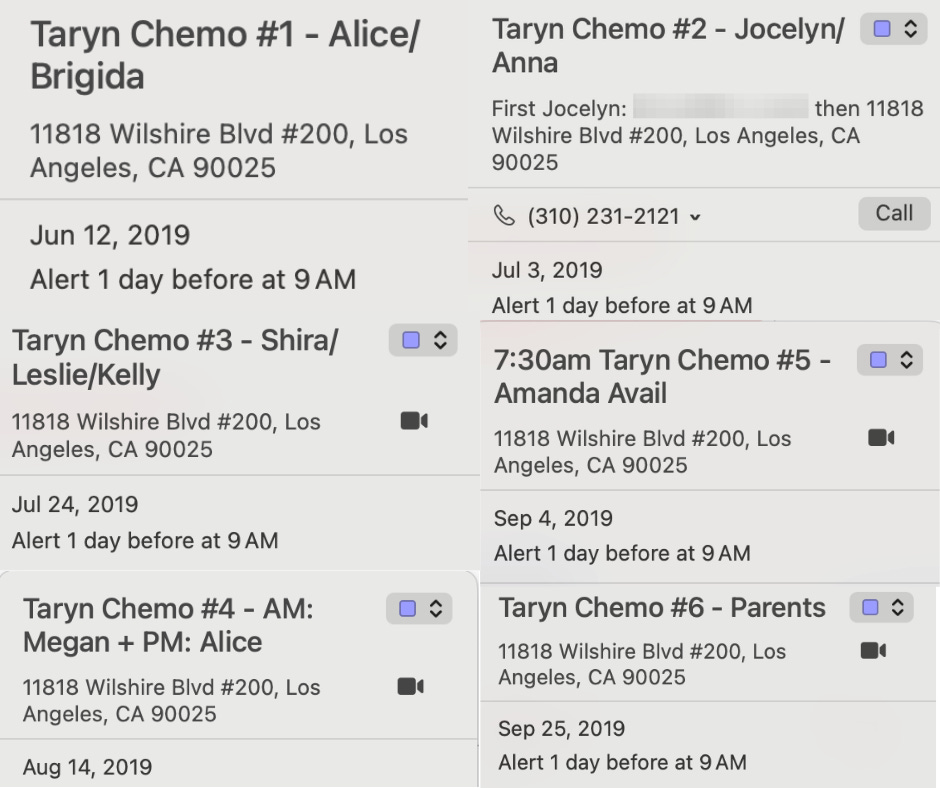

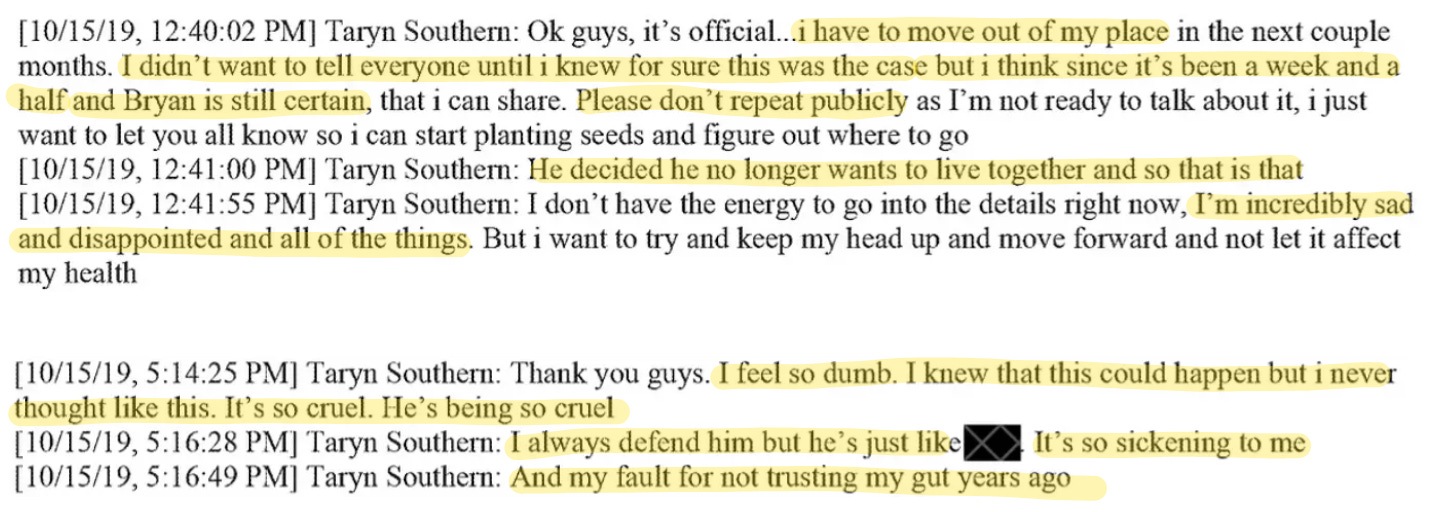






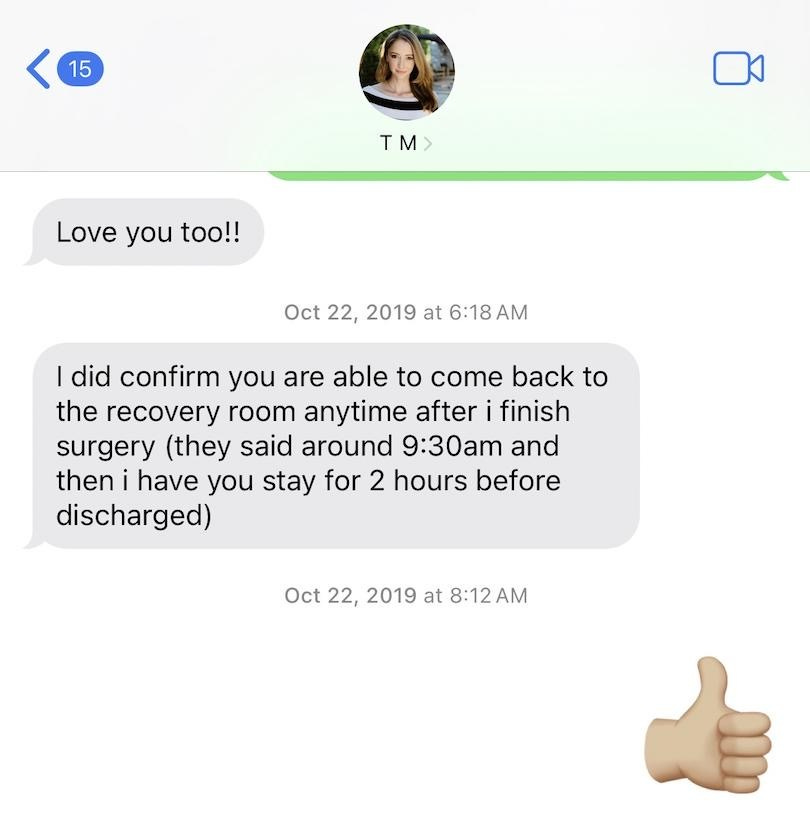





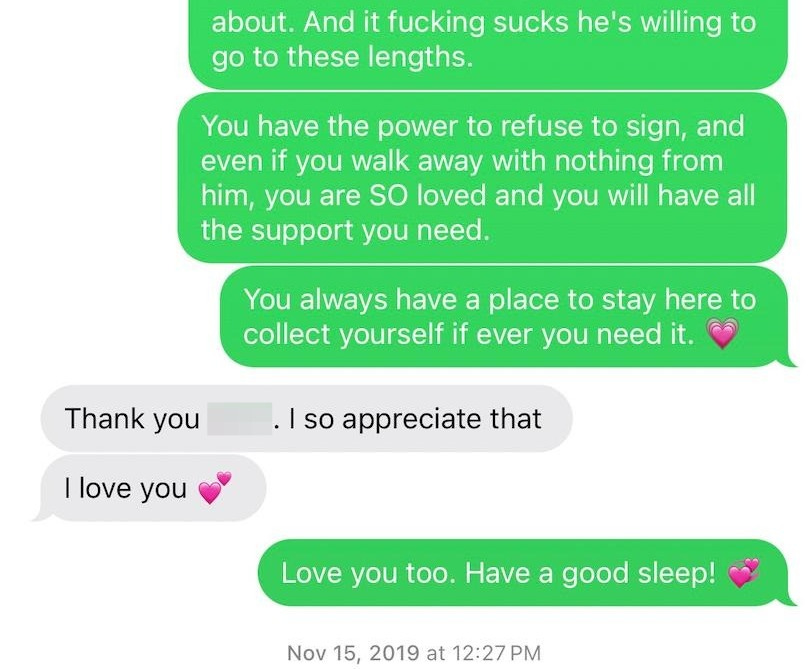











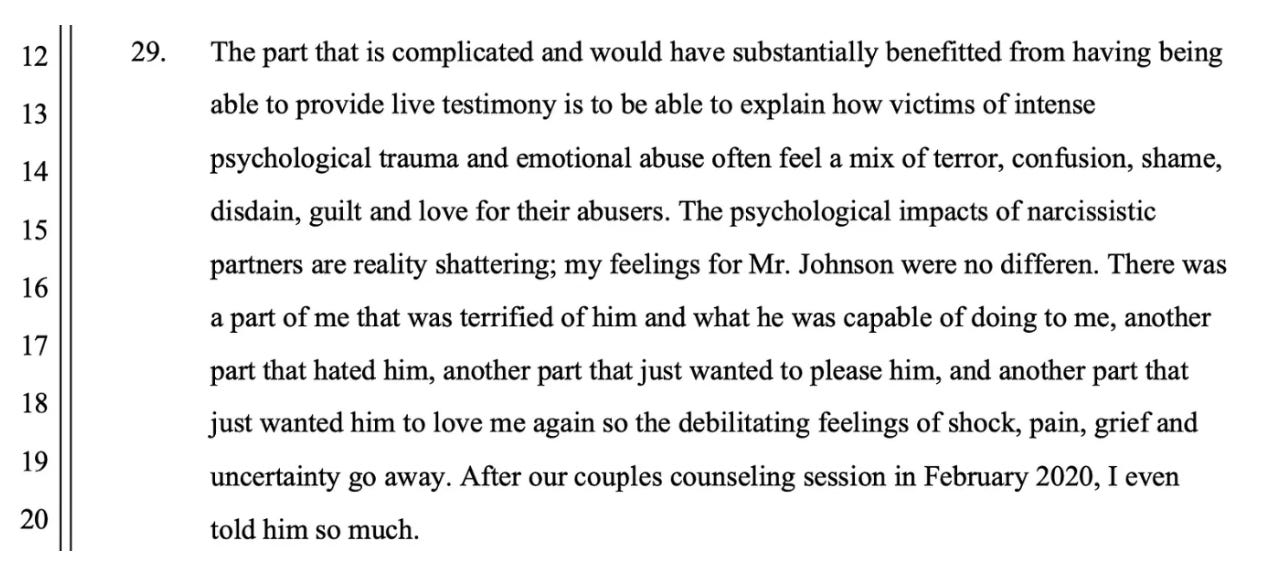





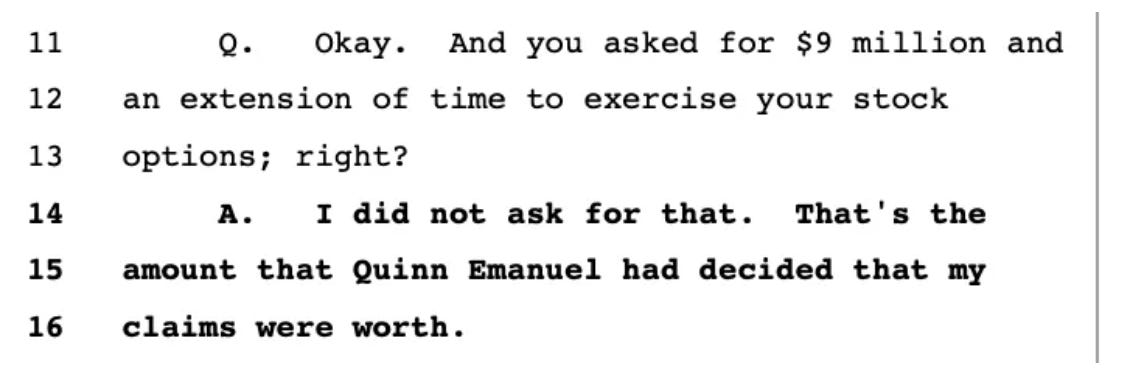


It’s pretty shocking so many reputable platforms with massive audiences have championed Bryan and his “quest to live forever”. He is clearly deeply ill and there’s nothing glamorous about his sad, rigid existence, throwing endless money at what’s obviously an obsessive compulsive fear of death.
Taryn deserves the right to tell her story and speak her truth without the fear of retaliation. #letherspeak